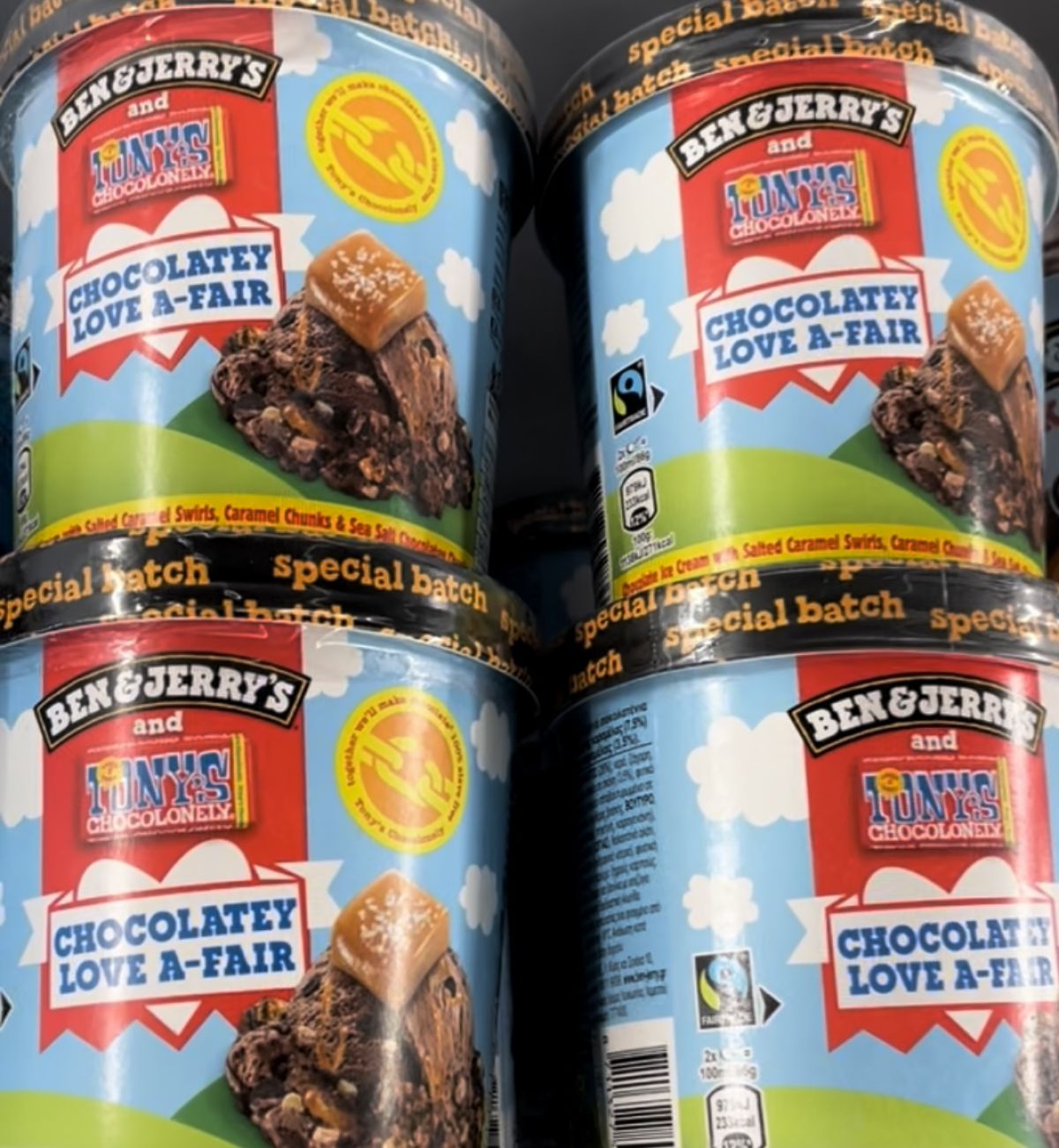Eating ethically: A chocolatey love affair

The ice cream-producer-turned-social justice warrior Ben and Jerry’s has come out with new ice cream. In collaboration with ethical chocolate brand Tony Chocolonely, the pair’s new product is set against slave labour in the chocolate industry. Both companies have a shared passion for social justice and a history of championing social causes, so it is only natural that Ben and Jerry’s have adopted Tony’s “Five Sourcing Principles” when it comes to sourcing cocoa. But why focus on cocoa?
The chocolate industry is dominated by a small number of large companies that benefit from keeping cocoa prices as low as they can, no matter the consequence. These issues are concentrated in cocoa farms in Cote d’Ivoire and Ghana, where 60% of the world’s cocoa is produced. The farms currently have 30,000 cases of modern slavery issues and 1.56 million cases of child labour.
The root cause of these inequalities stems from the inability to break free from the clutches of poverty. It is an endless cycle that directly causes modern slavery and illegal child labour in the chocolate industry.
Farmers in Ghana and Côte d’Ivoire make just $0.78 per day for their crops, falling consistently below the $2.49 living income per person per day which is needed to survive.
To curb this, Ben and Jerry’s and Tony Chocolonely have teamed up to make chocolate 100% traceable and slavery free, enabling a living wage for cocoa farmers. By sourcing only traceable cocoa, they are taking steps to enable more equal business relationships with suppliers in West Africa and ensuring lasting change.
Ben and Jerry’s will be the first ice cream company in the world to adopt Tony’s Five Sourcing Principles and Tony’s “Open-Chain” way of working. The principles force companies to take responsibility for ensuring an open and traceable supply chain and paying a higher price for raw materials to address poverty. The open-chain way of working is an initiative that aids companies in ending modern slavery and child labour in the chocolate industry.
Ben and Jerry’s state that they will continue to remain committed to Fairtrade Certified cocoa, sugar, vanilla, bananas, and coffee for all their flavours as they adopt Tony’s Open Chain way of working.
The collaboration produces two new limited-edition Ben and Jerry’s flavours (dairy and non-dairy) and two new limited-edition Tony Chocolonely flavours. Inspired by Tony’s famous sea salt caramel chocolate bar, the new ice cream, “Chocolatey Love A-Fair” features chocolate ice cream with salted caramel swirls, caramel chunks, and sea salt chocolatey chunks.
This delicious, limited-edition creation is a marriage between my personal favourite flavours – velvety chocolate, balanced perfectly with the sweet and salty caramel. The crunchy chocolate and caramel chunks, paired with the smooth ice cream also created interesting contrasting textures.
Tony Chocolonely’s limited edition chocolate bars take inspiration from some of Ben and Jerry’s classic ice cream flavours: a dark milk brownie, and a white strawberry cheesecake, both of which are coming soon.
However, we must also question how accessible ‘eating ethically’ is for the average consumer in the UK. The collaboration offers ethical ice cream and chocolate bars, but at what cost? The ice cream is priced at £5.50, and the chocolate bar is £3.60.
Considering the current economic environment, where some must decide between heating their home or putting food on the table, is the price of ethical food too high? Can someone who is earning the national minimum wage afford to spend almost a quarter of their hourly income on luxuries such as ethical ice cream? Are Ben and Jerry’s and Tony Chocolonely’s excluding customers? Or is the system simply too broken to enable equity for all?
Price complications aside, these companies are paving the way for more ethical trade with suppliers. Their shared mission focuses on human rights and dignity, social and economic justice, and environmental protection, restoration, and generation – a pretty sweet duo!







